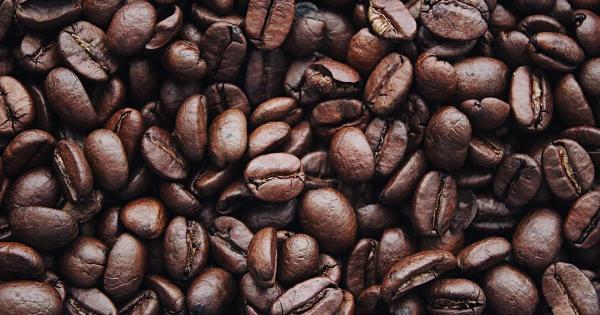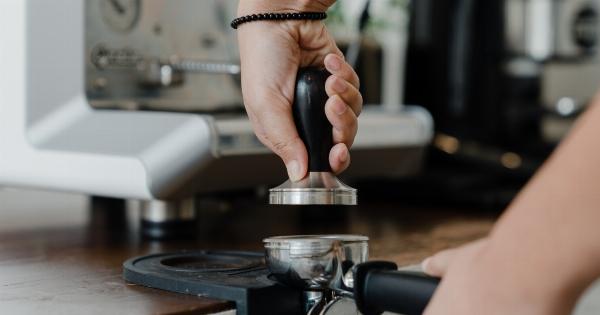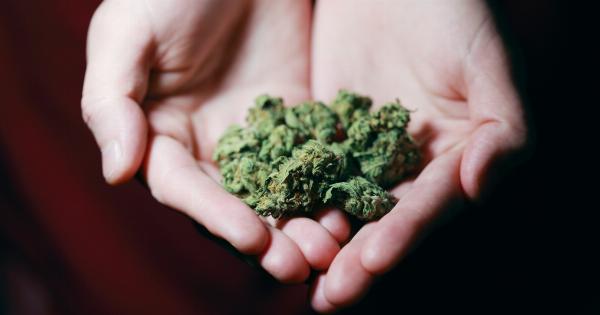Caffeine has become a staple in many people’s daily routines. Whether it’s a cup of coffee to start the day or an energy drink to power through a late-night study session, caffeine is often relied upon to boost energy and improve focus.
However, what happens when you try to quit caffeine? Many individuals experience a wide range of symptoms, known as caffeine withdrawal.
What is Caffeine Withdrawal?
Caffeine withdrawal refers to the collection of symptoms that occur when a person abruptly reduces or eliminates their caffeine intake.
These symptoms can vary in severity from mild to debilitating, depending on the individual and their caffeine consumption habits. Common symptoms of caffeine withdrawal include:.
1. Headaches
Headaches are one of the most common symptoms of caffeine withdrawal. They can range from a dull ache to a throbbing pain and are often described as tension headaches. The severity and duration of headaches can vary widely from person to person.
2. Fatigue and Drowsiness
Caffeine is a stimulant that enhances wakefulness and alertness. When you stop consuming caffeine, you may experience feelings of fatigue and drowsiness as your body adjusts to the absence of this stimulant.
You may find it harder to stay awake during the day or feel the need for naps.
3. Irritability and Mood Changes
Caffeine can have a significant impact on mood and can act as a mild antidepressant by increasing dopamine levels in the brain.
When you quit caffeine, you may experience irritability, mood swings, and even symptoms of depression as your brain chemistry adjusts.
4. Difficulty Concentrating
One of the main reasons people turn to caffeine is to improve focus and concentration. When you stop consuming caffeine, you may find it harder to concentrate and experience a foggy or cloudy feeling in your mind.
This can impact your productivity and ability to perform tasks that require intense focus.
5. Flu-like Symptoms
In some cases, people may experience flu-like symptoms when withdrawing from caffeine. These symptoms can include nausea, vomiting, muscle aches, and even fever.
While not always present, they can be quite uncomfortable for those going through caffeine withdrawal.
6. Anxiety and Restlessness
Caffeine is known to increase heart rate and contribute to feelings of anxiety and restlessness. When you stop consuming caffeine, you may experience heightened anxiety levels and restlessness, leading to difficulty relaxing or sleeping.
7. Changes in Appetite
Caffeine can suppress appetite and act as a mild appetite suppressant. When you quit caffeine, you may experience changes in appetite, such as increased hunger or cravings.
These changes can lead to overeating or difficulty maintaining a healthy eating pattern.
8. Constipation
While caffeine is a mild diuretic, it can also have a laxative effect. Regular consumption of caffeine can contribute to regular bowel movements.
When you quit caffeine, your body may take time to readjust, leading to constipation and difficulty in passing stools.
9. Sleep Disturbances
Caffeine can interfere with sleep quality and quantity. When you withdraw from caffeine, you may experience difficulty falling asleep, staying asleep, or experiencing restful sleep.
This can further contribute to feelings of fatigue and drowsiness during the day.
10. Caffeine Cravings
Lastly, many individuals experience strong cravings for caffeine when they try to quit. These cravings can be intense and make it difficult to resist the temptation to consume caffeine again.
The Power of Placebo
Interestingly, the symptoms experienced during caffeine withdrawal can also be affected by the power of placebo.
Placebo is a phenomenon where the belief in a treatment or intervention can lead to real physiological and psychological effects, even if the treatment itself is inert or has no real therapeutic value.
In a study conducted by researchers at Harvard Medical School, participants were divided into two groups: one received a placebo pill that they were told was a powerful caffeine withdrawal reliever, and the other received no treatment.
Surprisingly, those who received the placebo pill reported a reduction in the severity of their withdrawal symptoms compared to those who received no treatment.
This study highlights the significant impact that our beliefs and expectations can have on our experience of caffeine withdrawal.
The power of placebo suggests that our mindset and perception play a vital role in how we interpret and cope with the symptoms we experience.
Managing Caffeine Withdrawal
While caffeine withdrawal can be challenging, there are some strategies that can help individuals manage their symptoms:.
1. Gradual Reduction
Instead of quitting caffeine cold turkey, gradually reduce your intake over time. This allows your body to readjust more gradually and can reduce the severity of withdrawal symptoms.
2. Stay Hydrated
Drinking plenty of water can help flush caffeine out of your system and alleviate some symptoms. Additionally, staying hydrated can improve overall well-being and help with general recovery.
3. Get Enough Sleep
Ensuring you get enough restful sleep can help with fatigue and drowsiness during the withdrawal period. Establishing a consistent sleep routine and creating a sleep-friendly environment can promote better sleep quality.
4. Engage in Regular Exercise
Physical activity can help increase energy levels and improve mood. Engaging in regular exercise can also distract from caffeine cravings and provide a healthier way to boost energy and focus.
5. Consider Alternatives
If you rely on caffeine for a productivity boost or mental alertness, consider exploring alternative options such as herbal teas, decaffeinated coffee, or natural energy-boosting practices like meditation or yoga.
6. Seek Support
Caffeine withdrawal can be challenging, both physically and mentally. Reach out to friends, family, or support groups who can provide understanding and encouragement during this period.
Conclusion
Caffeine withdrawal can be a challenging experience, with symptoms ranging from headaches to mood changes. However, the power of placebo suggests that our mindset and beliefs can influence how we perceive and cope with these symptoms.
By using strategies to manage symptoms and seeking support, individuals can successfully navigate the process of withdrawing from caffeine and find healthier ways to boost energy and focus.




























